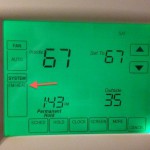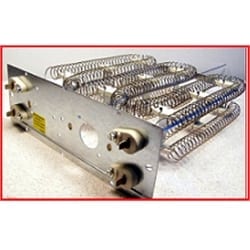New to a Heat Pump? What You Need to Know, So You Don’t Freak Out
Revised 9/7/23
We’ve compiled our most important tips and answers related to heat pumps. These come from actual customer questions and help homeowners across Central Indiana save money, understand their systems, and be comfortable.
Why More Heat Pumps?
More than ever before, homes in the Indianapolis area are using a heat pump combination, rather than a traditional air conditioner – gas furnace combination. Previously, limitation in technology made our climate an unlikely place to find a heat pump in your home. But now with improvements in technology and new developers opting for electric-only infrastructure, more home owners are finding themselves with heat pumps for the first time. Leaving all the technical details aside, we wanted to give some practical details of what having a heat pump in your home will look like. This helps you run it more efficiently and know what normal operation look like. To learn more about how Heat Pumps work, check out our HVAC 101.
Thermostat & Emergency Heat 
The main difference you will notice between traditional thermostats and heat pump thermostats is a setting called “Emergency Heat.” Emergency Heat (also called backup heat, auxiliary heat, heat strips, or heat pack) is a backup heat source that comes on when A) the heat pump can not reach the temperature setting, or B) the temperature setting increases and the system tries to raise temperature quickly.

Located inside your fan coil, your emergency heat pack serves as a backup source of heat for your home
Point B is what home owners should be most aware of. Emergency heat, when activated, pulls a significant amount of electricity. By significant we mean up to 10+ times the amount of electricity that your heat pump normally uses. If this emergency heat kicks on too much. you’ll see your electrical bills skyrocket. We strongly recommend that home owners with heat pumps keep a consistent indoor temperature setting to avoid this happening.
For example, if you get home from work and want to kick up your temperature setting from 65 to 68, you’ll likely engage your emergency heat to help the system drive that quick increase in temperature. The more cost effective recommendation is to just keep your temperature set at 68 during the day. The only caveat to this is if you’ll be gone for an extended period of time.
Heat Pumps Defrosting
Because the heat pump operates during the winter, the outdoor temperature has an impact on the system. As the outdoor temperature drops, the heat pump coil temperature also drops. At some point you will see frost start to develop on the outdoor system, which is normal. This requires that the system periodically goes into a defrost mode. This is a normal part of the system, but many times home owners are concerned since this can be an audibly loud process.
Indoor Air Temperature
One of the other common questions we get is about the temperature of the air coming from the vents in the winter. This is just a fact of how the systems are designed to operate. To reach a thermostat set point of 68, a heat pump will provide a lower temperature but a longer run time to reach that set point. A gas furnace will have a warmer temperature from the vents, but a shorter run time. Expect the temperature from the vents to be 95 – 100 degrees with most heat pumps. Conversely, a gas furnace might have 120 degree temperature coming from the vents. This will cause some home owners to say they “feel” warmer in a home with a gas furnace. Ultimately, the indoor temperature will be about the same, it’s just a different approach to reach that comfort level.
Heat Pump Tax Credits
Another reason some homeowners are turning to heat pumps is because of the increased numbers of incentives through the federal government, local utilities and manufacturers. In 2023, new incentives for heat pumps were crafted, that could provide homeowners up to $2,000 back as a tax credit. Many utilities across Indiana are also offering rebates and incentives for high efficiency heat pumps.
Have any other questions about your heat pump or need your system inspected? Call our office at 317-670-0171.